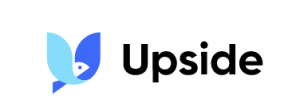Some might say that the school you attend doesn’t have an impact on your future in business, but that’s not the case for Rami Bakri, CEO and founder of Upside.
Rami Bakri attended the Royal Hospital School (RHS) from 1998 to 2005 and states that RHS made him who he is today. Rami was a solid student and an academic scholar. While at school he developed his business acumen, and built relationships with other students who would go on to be his investors in his most current tech business, Upside.
After leaving school, Rami went on to study Economics and received a First Class degree from the University of Leicester. He then became an Equities Sales Trader where he covered tech stocks and fell in love with the idea of getting into the tech industry and the entrepreneurial world that came with it. Since then, Rami has worked at a variety of start-ups including Bumble (formerly Badoo), Tandem Bank, and an emerging markets fintech called Dopay.
Despite having worked in various tech startups for more than 10 years, Rami was still unsure of whether he would fulfil his ambition to launch his own tech business, Upside. Rami’s old school friend, Jack Beaman, CEO of Indeed Flex, gave him some advice on raising funding to go after his goals, and the rest as they say is history. Rami managed to raise £200,000 in the space of three months and that enabled him and his co-founders to work on bringing Upside to reality.
Tech Round caught up with Rami:
Tell us about Upside
Upside is a teams and people analytics platform that helps companies build more effective teams.
Within 21 days companies can understand exactly how their Product and Engineering teams work and think. In doing so, they remove the stress and anxiety from your product delivery, increase their teams’ output by at least 10%, and fix their highest priority team engagement problems. With near-zero admin effort.

How did you come up with the idea for the company?
The idea came from working in teams with employees who had received bad performance reviews. It was a bugbear of mine that it was down to the opinion of the manager as to whether you got a great review or not, especially when manager’s subjective opinions are rife with human bias’. I also noticed that day-today there were far too many problems that weren’t being addressed within a team or department because reviews weren’t regular or quantifiable.
Upside allows instant transparency, you can see the performance and engagement level of all your employees and the teams that they’re on. There are also no lengthy and box-ticking performance reviews, so it’s great to live with as a user and admin.
Just real-time insights and nipping problems in the bud. It’s a solution-based tech platform that I believe many companies will benefit from. We’re already working with Crowdcube, Seedrs, Azimo, Tandem Bank, Indeed Flex and Feedr. Companies on my list to work with is simply any company with a product and engineering team. Whether they’re a startup, growth-stage, or enterprise-sized companies. Of course, it would also be great to have an opportunity to go back to my roots and explore working with the Royal Hospital School, the tech-savvy school that helped make me who I am today.
More from Interviews
- Meet Tobie Morgan Hitchcock, CEO & Co-Founder Of SurrealDB
- Meet Stephen Kines, COO And Co-Founder Of Goldilock
- Meet Henry Wilkinson, Co-Founder at Drop-in, Ahead Of The Opening Of Drop-in Richmond
- Meet Oli Cook, CEO and Founder of ekko.
- Meet Marko Maras, CEO and Founder of Trustfull
- Meet Jeff Warren, Chief Technology Officer at Netwrix
- Evgeny Filichkin, Investment Advisor at Keytom & FinTech50 Judge, Tells Us What He’s Looking For From Entrants
- Tracy Prandi-Yuen, VP, Global Partnerships at Boku Inc. & FinTech50 Judge, Tells Us What She’s Looking For From Entrants
How has the company evolved during the pandemic?
We started the company in evenings and weekends towards the end of 2020, and we’ve been remote full-time since February 2021. We have a fully flexible approach to our working practices, so we don’t have set start/finish times. All we do have is a 1pm Scrum each day, which comes from the Scrum framework and is a 15-minute time-boxed meeting for the team to quickly catch up and discuss if they have any impediments and who can help.
Setting the time to afternoon means we can have a globally distributed workforce on a meeting that anyone can join from. Building software fast and well is hard, it requires teams to be highly aligned, but other than that 1pm daily meeting, people work where and how they want.
The team is currently made up of three co-founders, two full-time contractors, and a bunch of other key advisers. We plan to stay light on our feet until we see an increase in revenue, which we imagine will be in around six months’ time.



